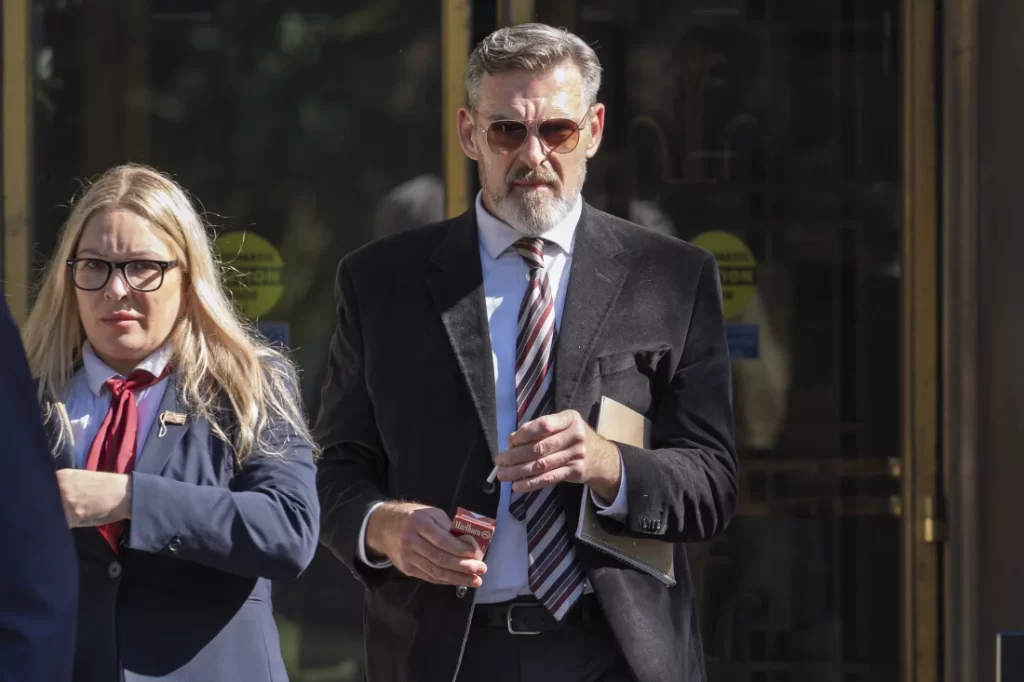Jay James Johnston, an actor recognized for his work on Arrested Development and Bob’s Burgers, was sentenced to one year and one day in prison for his involvement in the January 6, 2021, attack on the U.S. Capitol. The sentencing took place on Monday, highlighting the legal repercussions for individuals who participated in the riots that disrupted the certification of the 2020 presidential election results.
At 55 years old, Johnston was part of the crowd that stormed the Capitol, specifically at the Lower West Plaza during the chaotic events. He filmed the riot using his cell phone, capturing the disorder that unfolded that day. In July, he pleaded guilty to a felony charge of civil disorder, a decision that reflected his acknowledgment of the illegal nature of his actions.
Prosecutors detailed Johnston’s behavior during the riots, revealing that he climbed onto a stage set up for President Joe Biden’s inauguration to film the mayhem from that vantage point. Court documents also indicated that he briefly possessed a stolen police riot shield and was involved in a physical confrontation with law enforcement. Specifically, Johnston participated in a concerted effort to push against police officers guarding an entrance to the Capitol, resulting in significant chaos and violence.
According to the Justice Department, Johnston’s actions contributed to a serious incident where a Metropolitan Police Department officer was caught between the mob and a door, highlighting the dangerous environment created by the rioters. In light of this, prosecutors recommended an 18-month prison sentence, emphasizing that Johnston showed no remorse or acceptance of responsibility for his conduct.
Investigators noted that shortly after the attack, Johnston downplayed the seriousness of the events in messages to an associate, claiming, “The news has presented it as an attack. It actually wasn’t.” This statement underlined a troubling disconnect from the reality of the violent insurrection, which resulted in multiple injuries and the deaths of several individuals.
During the sentencing hearing, Johnston’s attorney advocated for a more lenient sentence, arguing that the prosecution had exaggerated his involvement in the Capitol riot due to his status as a public figure. The attorney asserted that the government was leveraging Johnston’s celebrity status to make a broader statement about the events of that day.
In addition to his prison sentence, Johnston was ordered to pay $2,000 in restitution, reflecting the financial impact of the riots. This ruling is part of a larger trend, as courts across the nation have been imposing various penalties on individuals convicted of participating in the Capitol attack.
Johnston’s case serves as a reminder of the severe consequences that can arise from engaging in political violence. The events of January 6 have been extensively investigated, with numerous participants facing legal action, including prison sentences and fines.
As the fallout from the Capitol attack continues to unfold, Johnston’s sentencing marks another chapter in the ongoing efforts to hold accountable those who sought to disrupt the democratic process. The implications of his actions extend beyond his personal consequences, contributing to a broader dialogue about the responsibilities of individuals, particularly public figures, in political discourse and civic engagement.
This case, along with many others related to the January 6 insurrection, illustrates the ongoing legal and societal ramifications of that day, as the nation grapples with the challenges posed by extremism and political violence.








